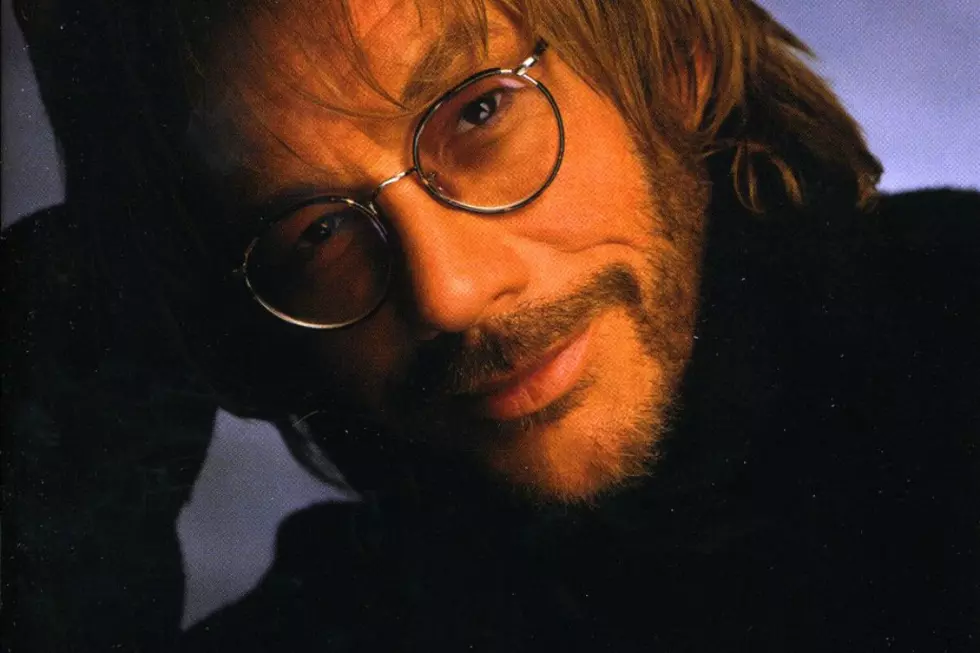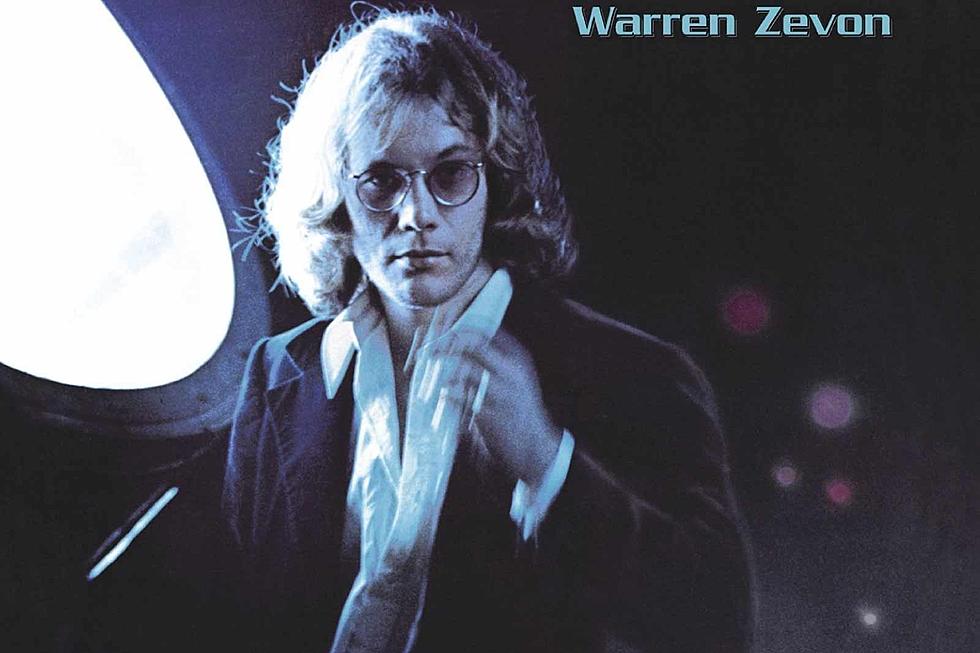
How Warren Zevon’s ‘Life’ll Kill Ya’ Began a Surprising Late-Career Surge
If it wasn't for second chances, hardly anyone would have a job in the music business. But even by the industry's standards, '90s-era Warren Zevon seemed like a guy who might have signed his last contract.
He was a brilliantly talented songwriter and singular recording artist, to be certain, but one whose career had been pockmarked by dwindling sales and erratic behavior.
Zevon closed the decade at the end of a nearly five-year drought between studio albums, and while his last few LPs (including 1991's Mr. Bad Example and 1995's Mutineer, both for Irving Azoff's Giant Records) had earned him no shortage of critical praise, they'd also found him playing to an increasingly selective audience. When he returned on Jan. 25, 2000, with his 10th studio album, Life'll Kill Ya, it almost came as something of a surprise.
"The older you get, the more you realize that there’s a shitload of stuff to do. There are certainly a lot of things to do besides single-mindedly pursue a show-business career," Zevon shrugged during a conversation with Rolling Stone when asked about the prolonged hiatus. "I decided I wanted to play flute like Hubert Laws. I decided I should be able to read 'Pater Noster' in Russian. Both of those are pretty difficult goals, but even a laughable attempt at either one can keep you busy as a motherfucker for years and years."
It had also become increasingly difficult to put together an album's worth of songs Zevon felt truly lived up to his standards – and he wasn't willing to scratch much deeper than he already had.
"I've got to concentrate for an hour a day because that's all I'll be able to be really creative for – like sitting down with a guitar and a typewriter and recording stuff, you know what I mean? I may be thinking about the song the other 23 hours of the day but it's not going to do me any good," he admitted during an interview with DIG Internet Radio. "This is a rationalization for the fact that I'm profoundly lazy. So I don't know what would happen if I worked more hours and worked harder. It seems to me like I'd substitute something for inspiration, which is what makes songwriting so interesting – not knowing why you thought of the songs."
Clear on his commercial prospects, Zevon continued writing and performing, but grew progressively more ambivalent about the idea of another record deal. As he explained in multiple interviews, that wasn't the kind of thing he'd ever really had to chase anyway: At different points in his career, he'd always benefited from the largesse of well-heeled and/or influential fans that had shepherded his music where it needed to go.
Listen to 'I Was in the House When the House Burned Down'
Among the first on that list was Jackson Browne, who helped Zevon secure his first record deal, and who again stepped in at an opportune moment to bring Life'll Kill Ya to the finish line.
"I kinda made the record for six people," Zevon told Salon, explaining that the diminished financial realities of his recording career led him to cut many of the tracks in his home studio. "I thought this might be my last album. I gave a tape to David Letterman and he plugged it on the air. At some point, I played it for Jackson. ‘I don’t think I’m gong to do anything with it, but I think you should hear it.’ We sat in my car and I played it for him. He said, ‘Are you going to do anything with these?’ I said, ‘I dunno. Maybe not.’"
"There wasn't even a label when Jackson proposed it. He just said that Danny [Goldberg, founder of Artemis Records] was starting something and he wanted Danny to hear it. I've always heard about Danny, but I didn't know him. So, I said 'fine,'" Zevon recalled. "Danny Goldberg has always been known as an artist guy as opposed to a big industry guy – although he is a big industry guy."
He might have wondered why more of his records weren't bigger hits, but Zevon also professed to be detached from whatever commercial lives they led after he hit the "Stop" button on the tape machine.
"When I finish writing a song or I finish arranging something or I finish playing something for myself that's basically it. My job is done," he explained. "Everything I'm really going to earn is collected. I'm done and everything else that happens just seems to be the vagaries, the vicissitudes, of chance I guess. It all results from what I did on the sofa but not directly."
"I don't think it's ever been a case of there being a big audience that stopped taking a ride with me so much as a big audience that accidentally stepped on a Mr. Toad's ride on the way to the funhouse, on the way to the Michael Jackson Expo," he quipped in a separate interview. "I don't know. I used to say that I was just a folk singer, that because I had had a hit record, I was sort of perceived of as like a down and out ‘70s superstar or something, as opposed to a very successful folk singer, which is how I've always seen myself."
Humor and brutal, poignant honesty had always been hallmarks of Zevon's oeuvre, and both of those qualities were in full effect on Life'll Kill Ya – perhaps most notably in the title track and "Don't Let Us Get Sick," the tender plea that closes the record.
Listen to Warren Zevon Perform 'My Shit's Fucked Up'
In between, he delivered some of his clearest, sharpest commentary (as well as a cover of Steve Winwood's "Back in the High Life" that he explained by saying "all humans love Steve Winwood"), but he resisted suggestions that he'd put together a morbid album. In fact, as he argued, he was imparting the opposite message.
"I mean, the fact that life will kill you is just that," Zevon pointed out when asked about the seemingly fatalistic nature of the album in general and the title track in particular.
"I think you have to spend a fair amount of time realizing that you will be, so that you'll remember to enjoy everything you possibly can every minute you're not," he added. "You always want to try and tell younger people that, which is very difficult, because they don't really hear it because they feel a life has been imposed on them. And of course, they're absolutely correct."
If any single aesthetic really drove the record, it may have been Zevon's desire to write a set of songs that he'd be able to play out with a minimum of accompaniment.
"For the past few years, I'm essentially like a heavy-metal folk singer. I play by myself. For economic reasons, because I'm anti-social, and, because it's not as loud. There's a number of reasons," he mused. "But I play alone, and I wanted to write songs that I was going to be able to play by myself without disappointing people, you know, disappointing their expectations in hearing the guitar solo from the record or the sax section or something."
Ultimately, while it wasn't really anything approaching a hit, Life'll Kill Ya at least reversed Zevon's long sales slide while demonstrating he still had a small but appreciative audience.
Zevon's life would sadly be cut short on Sept. 7, 2003, after a battle with cancer. But not before this album kicked off a career-closing trilogy (followed by 2002's My Ride's Here and 2003's The Wind) that allowed him to go out on a high note. Even at his lowest, Zevon's star always shone brighter than most. "I’m insane. I’m fucked up. I have problems," he admitted. "But I don’t get depressed and I don’t get bored."
Top 100 Live Albums
More From Ultimate Classic Rock









